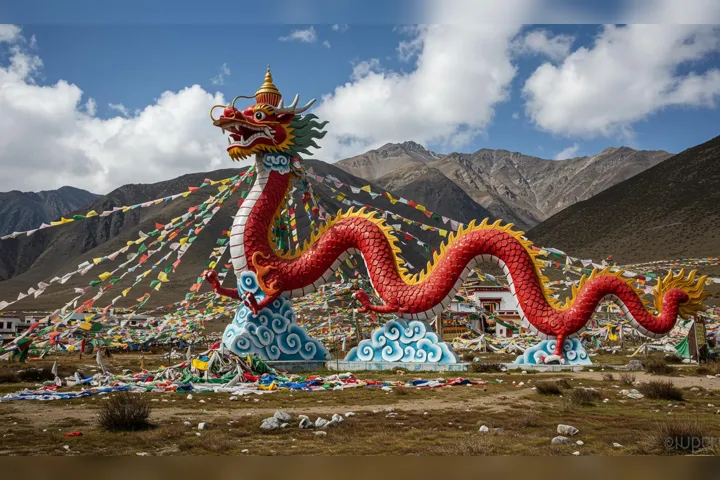
Chinese Communist Party Celebrates 60 Years of Rule in Tibet with Grand Parade

What's Happening? China marked the 60th anniversary of Communist Party rule in Tibet with a grand ceremony and parade in front of the Potala Palace, the former residence of the Dalai Lama. The event featured speeches emphasizing economic development and the need to combat separatism. Senior Communist Party leader Wang Huning addressed a crowd of 20,000, asserting that Tibetan affairs are internal matters and external interference will not be tolerated. The parade included floats, dance troupes, and formations of troops and police, showcasing the achievements of the Tibet autonomous region since its establishment in 1965. Why It's Important? The celebration underscores China's ongoing efforts to consolidate its control over Tibet, a region with a history of resistance to Chinese rule. The event highlights the government's narrative of progress and prosperity under Communist leadership, despite criticism from overseas Tibetans and human rights groups. The emphasis on fighting separatism reflects China's broader strategy to maintain stability and prevent any movements that could challenge its authority. This has implications for international relations, particularly with countries that support Tibetan autonomy or criticize China's human rights record. What's Next? China's approach to Tibet is likely to continue focusing on economic development and strict control over political dissent. The government may increase efforts to integrate Tibet further into the national framework, potentially leading to more infrastructure projects and cultural assimilation policies. International reactions could vary, with some countries expressing concern over human rights issues, while others may prioritize economic ties with China. The future of the Dalai Lama's reincarnation remains a contentious issue, with China asserting its right to appoint his successor, which could lead to further diplomatic tensions. Beyond the Headlines The event raises questions about the long-term cultural and religious impacts of Chinese policies in Tibet. The suppression of Tibetan Buddhism and the demolition of monasteries have altered the region's cultural landscape. The government's control over religious practices and the appointment of the Dalai Lama's reincarnation could further erode traditional Tibetan identity. These developments may lead to increased activism among Tibetan diaspora communities and influence global perceptions of China's human rights practices. AI Generated Content
For the benefit of users - Parts of this article may include content generated using AI tools. Our teams are making active and commercially reasonable efforts to moderate all AI generated content. Our moderation processes are improving however our processes are carried out on a best-effort basis and may not be exhaustive in nature. We encourage our users to consume the content judiciously and rely on their own research for accuracy of facts. We maintain that all AI generated content on our platform is for entertainment purposes only. To know more about how we use AI, you can write to us at
Close AI Generated Content